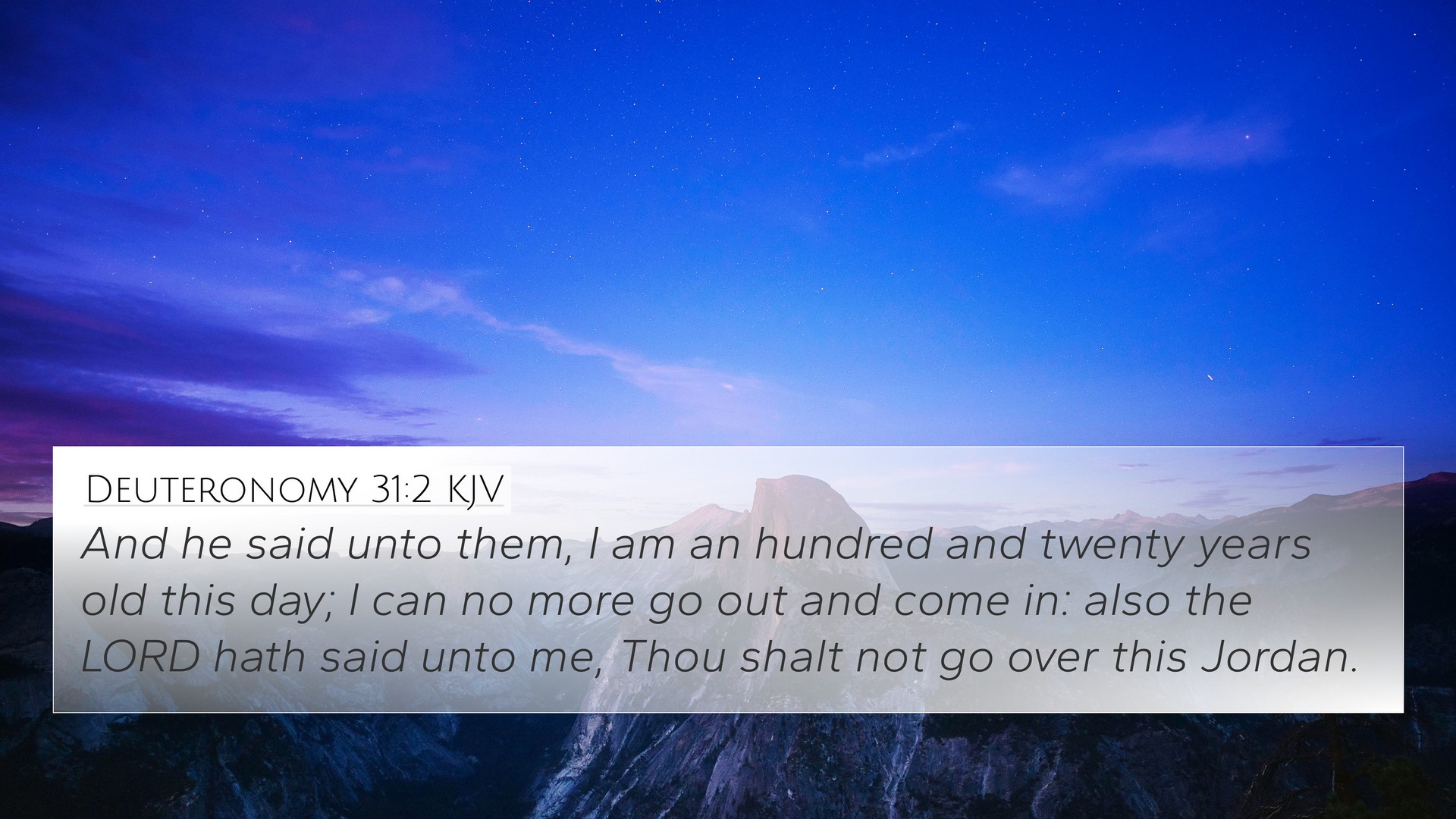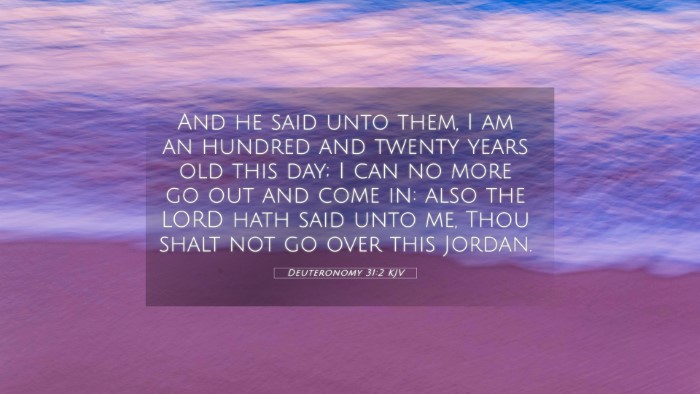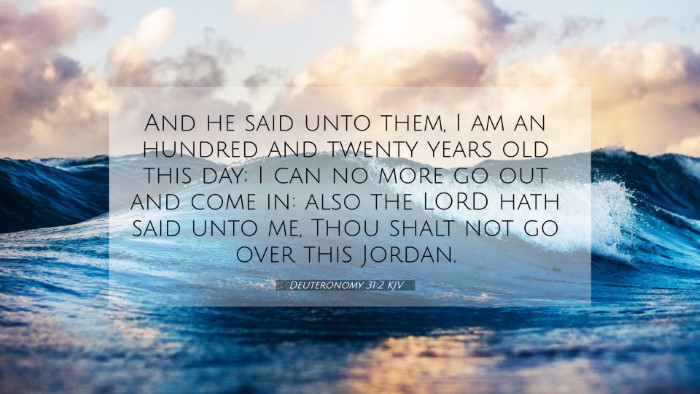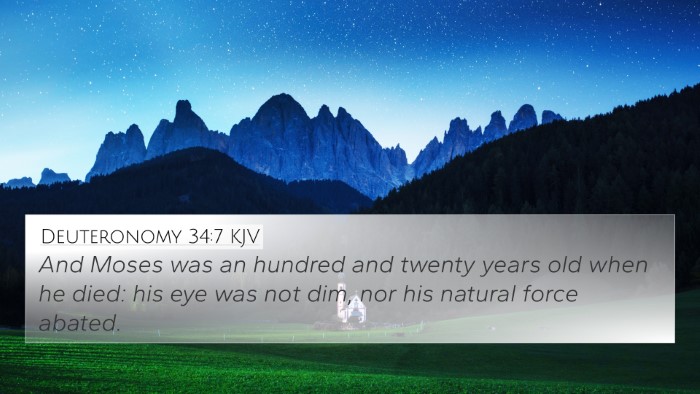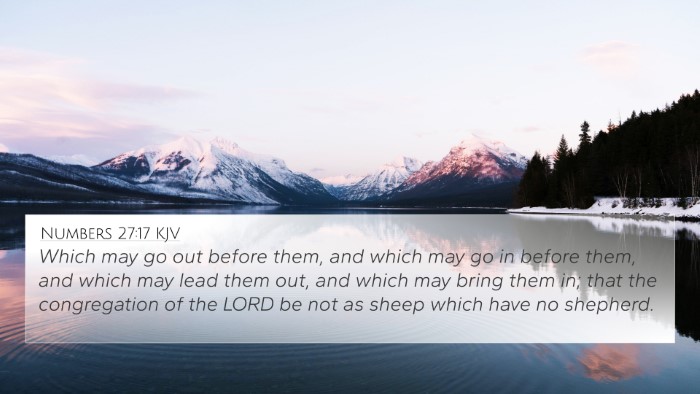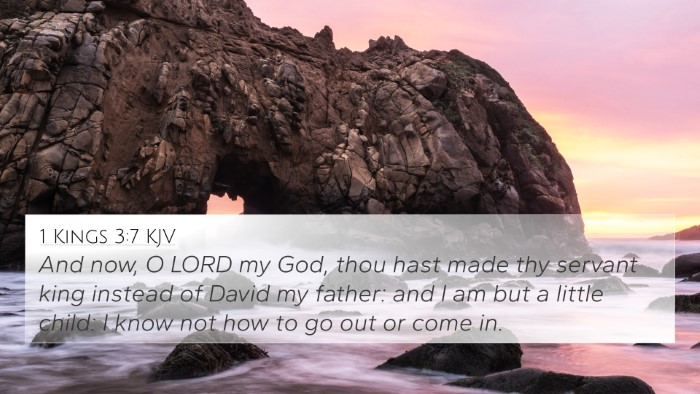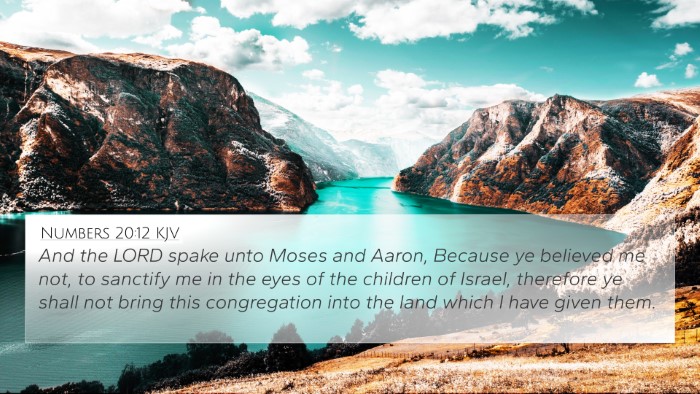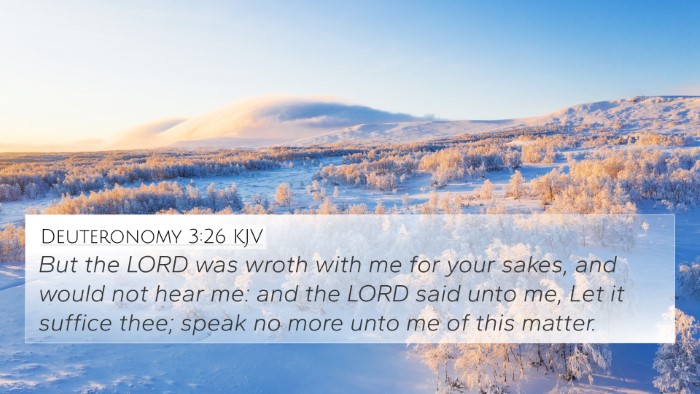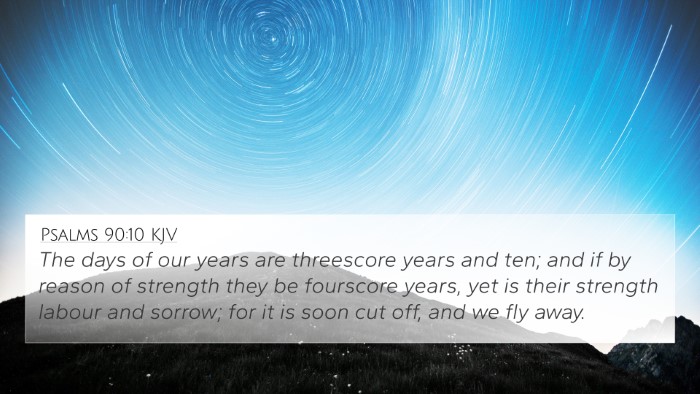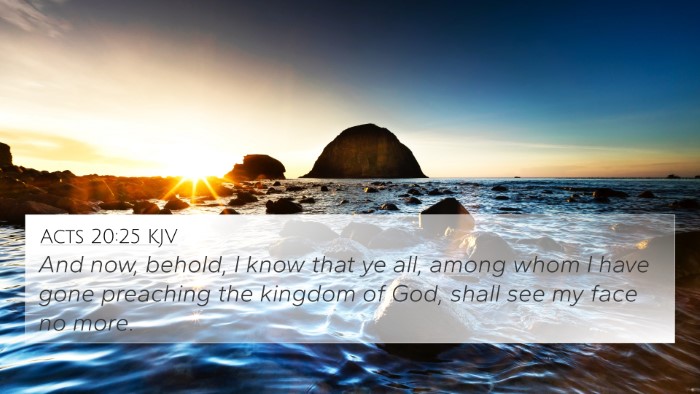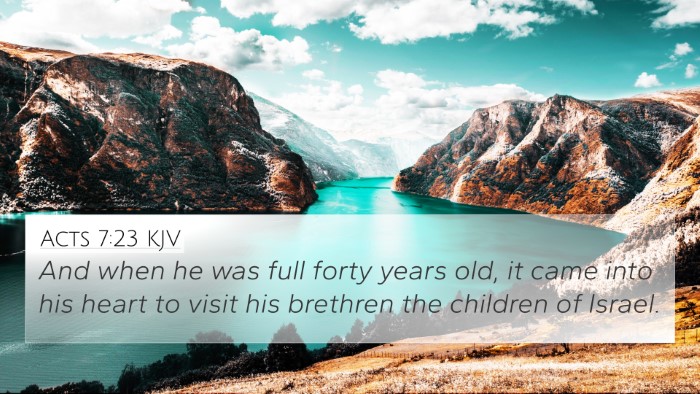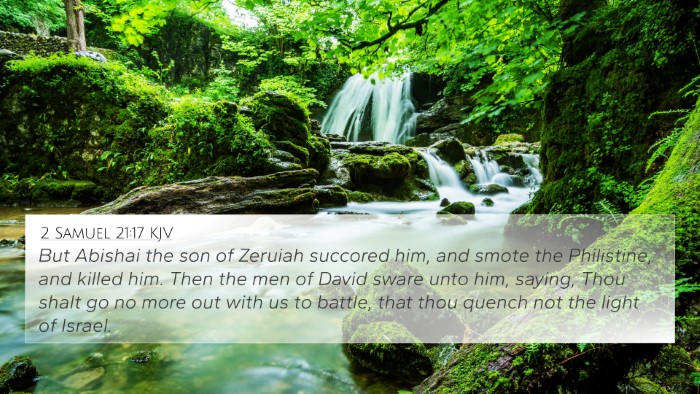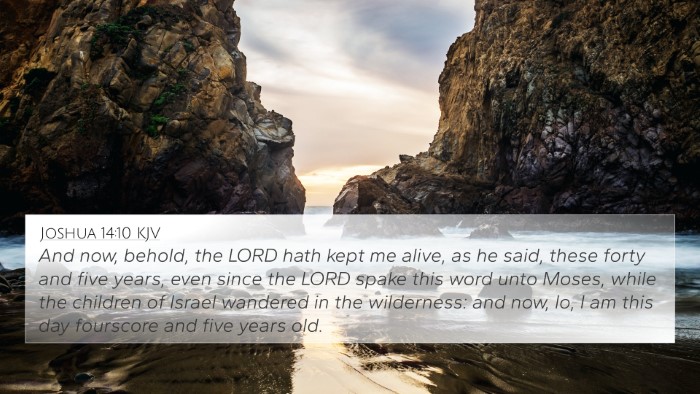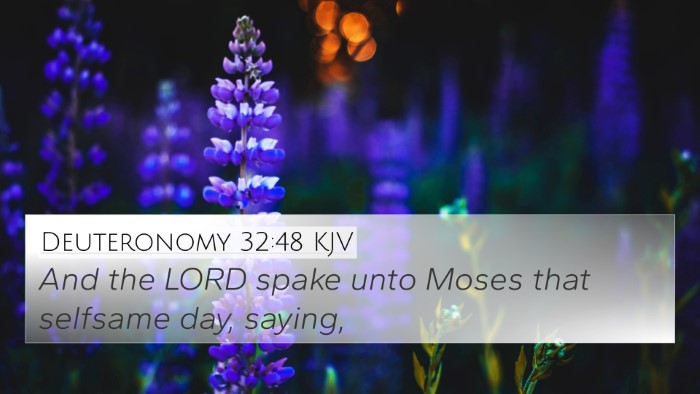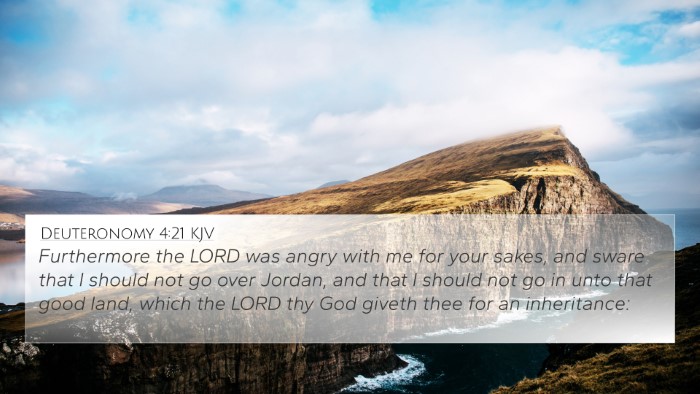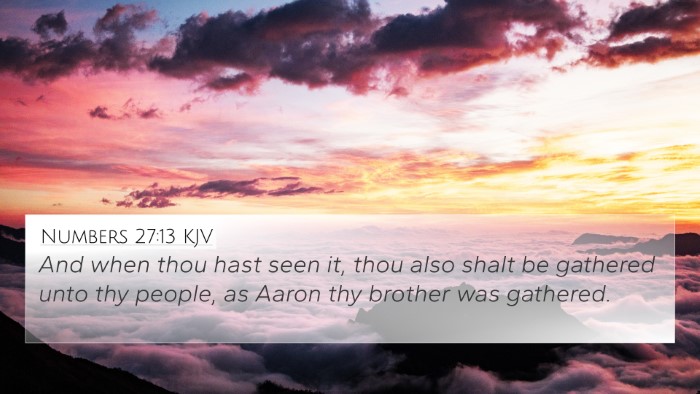Understanding Deuteronomy 31:2
Verse (Deuteronomy 31:2): "And he said unto them, I am an hundred and twenty years old this day; I can no more go out and come in: also the LORD hath said unto me, Thou shalt not go over this Jordan."
This verse is a poignant reflection of Moses' leadership nearing its end as he prepares the Israelites for the transition into the Promised Land. The verse reveals key themes about aging, divine instruction, and the continuity of leadership.
Verse Meaning Overview
The insights into Deuteronomy 31:2 can be derived from various public domain commentaries, enriching our understanding through different theological perspectives:
Matthew Henry's Commentary
Henry emphasizes the reality of Moses' aged condition and his acceptance of God's decree that he would not enter the Promised Land. This verse illustrates the humility of Moses as he acknowledges his physical limitations and the sovereign plan of God.
- Aging and Leadership: Moses reflects on his capacity to lead, symbolizing a deeper truth of reliance on God's plan beyond human ability.
- Divine Mandate: God's word is given authority in Moses' life, showcasing a parallel between obedience and God's will.
Albert Barnes' Notes on the Bible
Barnes highlights the significance of Moses’ statements about his age and his physical ability to continue leading. The mention of 120 years denotes wisdom acquired over time but also the inevitable decline due to mortality.
- Reflection on Service: Moses' life powerfully demonstrates that covenant service continues despite personal limitations.
- Transition of Leadership: The verse prepares the Israelites for a change, indicating the importance of God’s chosen successor.
Adam Clarke's Commentary
Clarke points out the emotional weight of Moses’ farewell address to the people. His acknowledgment of not crossing the Jordan serves as a critical point for followers, marking the end of an era.
- Hope for Israel: While Moses will not lead them into Canaan, hope remains in God's promises.
- Call for Faith: Moses urges the Israelites to continue their journey, emphasizing trust in God’s faithfulness.
Bible Cross-References
Deuteronomy 31:2 can be linked to numerous other scriptures that provide a deeper understanding of its context and significance:
- Deuteronomy 34:5-6: The account of Moses’ death provides closure to his leadership.
- Joshua 1:1-2: God's commissioning of Joshua as Moses’ successor.
- Numbers 20:12: God's earlier disqualification of Moses from entering the Promised Land.
- 2 Timothy 4:7-8: The New Testament reflection on finishing the race, akin to Moses' journey.
- Psalm 90:10: A meditation on human lifespan, paralleling Moses’ age.
- Hebrews 11:23-29: The faith and obedience of Moses as critical themes.
- John 14:6: Jesus’ affirmation of the way, echoing the journey into God’s promise.
- Isaiah 46:4: God’s promise to sustain through all ages, foreshadowing His guidance.
Connections Between Bible Verses
Understanding Deuteronomy 31:2 involves discerning the connections it has with other scriptures:
- Linking Bible Scriptures: The relationship between Moses and Joshua signifies a theological legacy.
- Comparative Bible Verse Analysis: Analyzing Moses in Deuteronomy alongside figures like Abraham and David reveals consistent divine guidance.
Thematic Bible Verse Connections
This verse can serve as an anchor for exploring broader biblical themes:
- Leadership in Transition: The shift from Moses to Joshua exemplifies God’s continuous calling within His people.
- The Role of Faithfulness: Moses as a model of faith, obedience, and humility before God.
Conclusion
Deuteronomy 31:2 culminates in a profound moment of recognition of God's sovereign plan, Moses' obedience, and the ongoing journey of the Israelite people. This verse embodies crucial lessons on leadership, divine purpose, and the nature of faith. By exploring its meanings and connections to other scriptures, believers can glean valuable insights into their own spiritual journeys.
For those seeking to understand the implications of this verse, tools for Bible cross-referencing can provide a deeper insight into the connections between biblical texts. Whether one is preparing for a sermon or looking for encouragement, understanding the breadth of scripture can guide believers in their walks with God.
